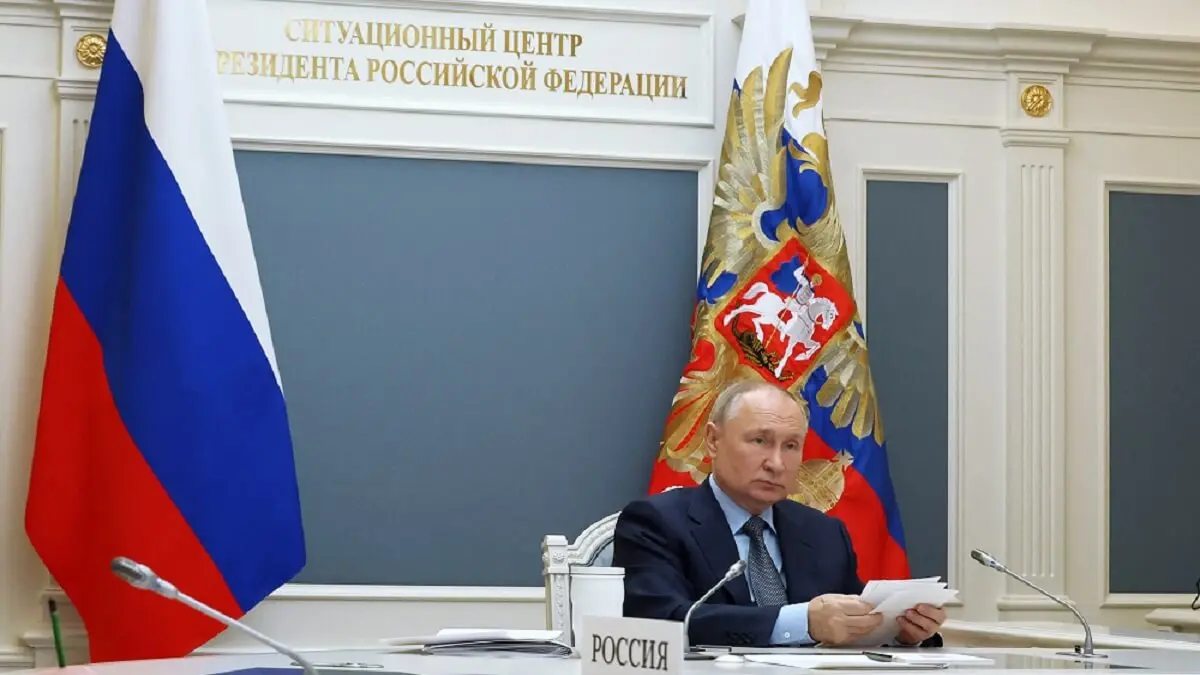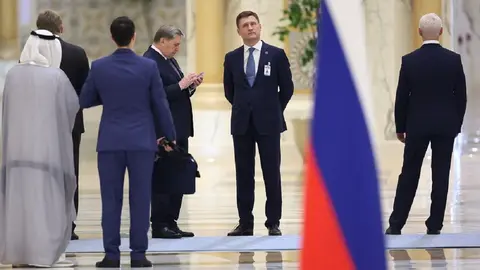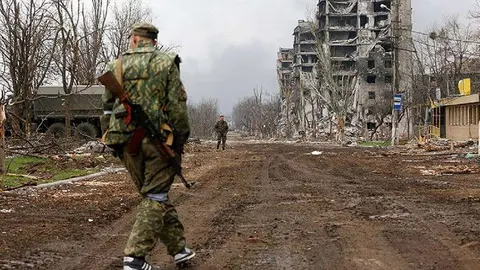Russia seeks to exhaust Ukraine with massive bombardment

Russia's massive bombardment of major Ukrainian cities in recent days is aimed, according to experts, at exhausting the population and wearing down Ukraine's anti-aircraft defences, which has again asked its Western allies for more weapons.
A meeting between NATO and Ukraine on this issue is scheduled for Wednesday at Kiev's request, the Alliance announced.
Kyiv is under brutal attack! 99 missiles fired by Russia at civilians. No alternative for the EU than to step up support for Ukraine now. Militarily, financially.
— Guy Verhofstadt (@guyverhofstadt) January 2, 2024
Putin is at war with the European way of life that Ukraine defends. Wake up, Europe! pic.twitter.com/HtvdIu9ajr
According to Ukrainian President Volodimir Zelenski, Russia fired nearly 300 missiles and more than 200 Shahed explosive drones in two attacks on 29 December and the night of 1-2 January, killing some 50 people.
A year after Moscow's massive attacks on Ukraine's energy infrastructure, this midwinter campaign has hit essential civilian facilities and residential areas, according to Kiev. Moscow, however, as it usually does, claims it only targeted military targets.
According to Mick Ryan, a research associate at the Center for Strategic and International Studies (CSIS), one of the Kremlin's first objectives is to "test" Ukraine's anti-aircraft defence, which has been boosted by the US Patriot system and its Franco-Italian equivalent, SAMP/T MAMBA.
Russia is hopeful that "Ukraine will run out of interceptors before Russia runs out of missiles and drones," Ryan, a retired Australian general, said on the social networking site X.
At least four people died in Dnipro region because of Russian missile and drone attacks this morning. Russians hit a shopping mall in Dnipro. People were also killed in Odesa, Lviv, Kyiv, the number of casualties is rising. 6 and 8 y.o. children were injured in Odesa
— Olga Tokariuk (@olgatokariuk) December 29, 2023
📷 @suspilne pic.twitter.com/UON2OCtLKh
Russia has mobilised its economy for war while Western countries are slow to supply Ukraine with the required number of surface-to-air anti-aircraft missiles, which are far more complex and expensive to manufacture than some drones built partly from civilian equipment.
According to the UK Ministry of Defence, the main target of Russian attacks is the defence industry, which Kiev is trying to strengthen in the face of a shortage of Western arms deliveries.
Another Morning missile attack accross Ukraine this is from Kyiv. Since the Invasion started Russia has been relentless in it's attacks against Ukrainians.
— COSSACKGUNDI (@cossackgundi) January 2, 2024
Klitschko: 12 victims were hospitalized by medics from a multi-story building in the Solomyansky District, where a fire… pic.twitter.com/Sju8Nw6T6u
Psychological pressure
The Russians "are now trying to attack the military-industrial complex, the enterprises, not the energy infrastructure [as they did last winter] but arms production," military analyst Mykola Bielieskov of the Ukrainian Institute for Strategic Studies tells AFP.
"We have started to produce more weapons than before," Sergiy Zgurets, director of the Ukrainian research centre Defense Express, told AFP, referring to ammunition, drones, armoured vehicles and radar.
According to the commander-in-chief of the Ukrainian army, Russia used drones, modern cruise missiles, older ones and ballistic missiles for the 1-2 January attack.
People from all over Kyiv are assisting in cleanup operations at the many scenes around the city damaged in yesterday's Russian missile attacks. pic.twitter.com/U292Yabqt5
— Jay in Kyiv (@JayinKyiv) January 3, 2024
Ukraine also claims to have shot down ten Kinjal hypersonic missiles despite the Kremlin's claim that they are "invincible".
The aim of the Russian attacks is also, as it has been since the beginning of the war in February 2022, to undermine the morale of the population.
"Russian 'victories' on the ground are local and are achieved at an exorbitant human cost," Tatiana Kastueva-Jean of the French Institute of International Relations told AFP.
According to the expert, Putin's message is "I will not give in, you will suffer endlessly and die if you do not meet my conditions".
A burning building in the Solomianskyi district of Kyiv after Russia’s attack pic.twitter.com/Pbyn0rIvRG
— Maria Drutska 🇺🇦 (@maria_drutska) January 2, 2024
Tatiana Stanovaya, founder of R. Politik, a centre for analysis of Russian politics, believes that the latest Russian attacks are in retaliation for the Ukrainian shelling of the Russian city of Belgorod that killed 25 people on 30 December.
According to the analyst, Putin's message is: "Ukraine cannot attack us without consequences".
In the face of the Russian offensive, the head of Ukrainian diplomacy, Dmytro Kuleba, called for speeding up Western deliveries of "additional air defence systems, combat drones" and "missiles with a range of more than 300 kilometres".
“There are sufficient resources to provide Ukraine with the help we’re requesting. All the west has to do is to start believing in itself, in its capacity to prevail.” Ukraine’s Foreign Minister @DmytroKuleba describes Russia’s latest assaults on Kyiv & what Ukraine needs to win. pic.twitter.com/0EJJ8YZoIQ
— Christiane Amanpour (@amanpour) January 3, 2024
In the same vein, Poland on Wednesday called for equipping Ukraine with long-range missiles to respond to Russian attacks.
Kiev is also waiting for F-16 fighter jets promised by several European countries, which can participate in air-to-air missile defence.










